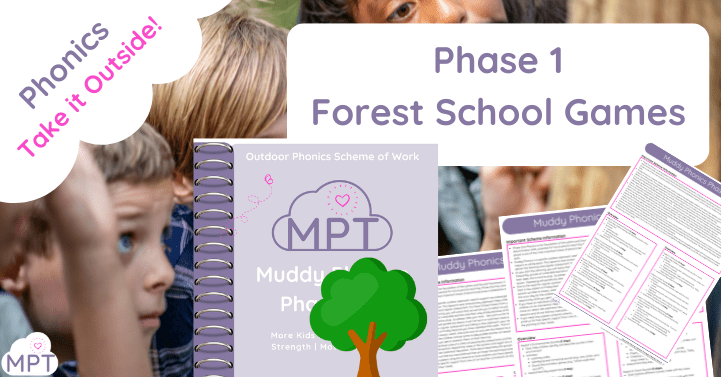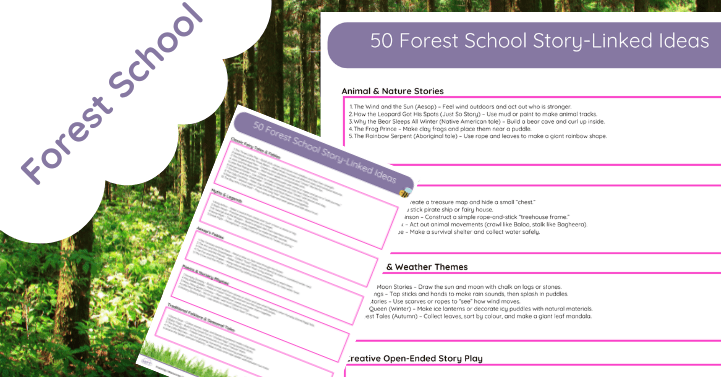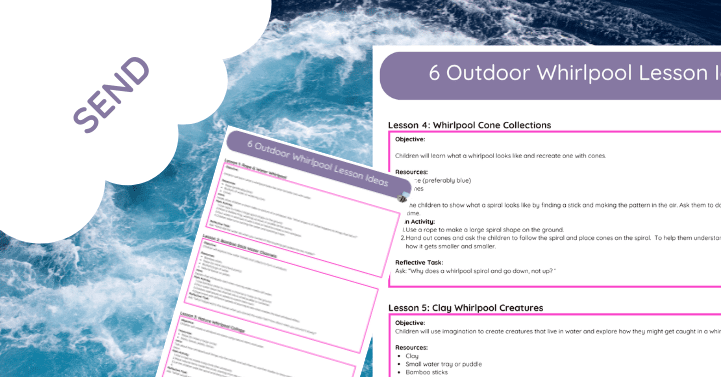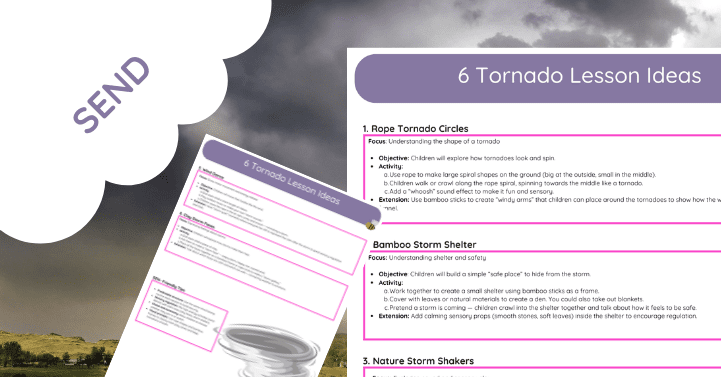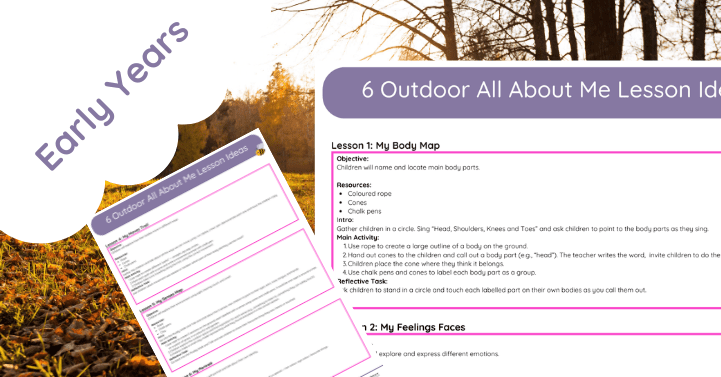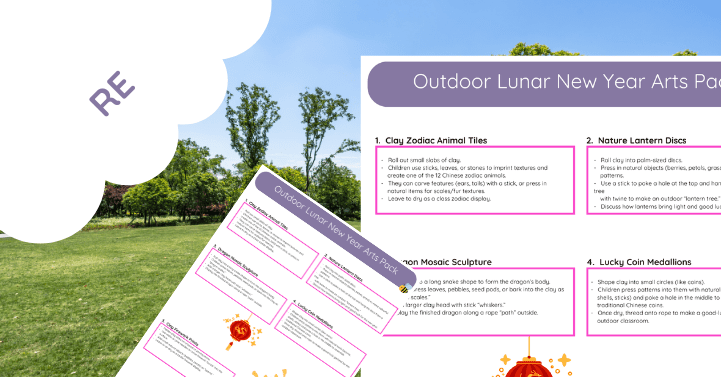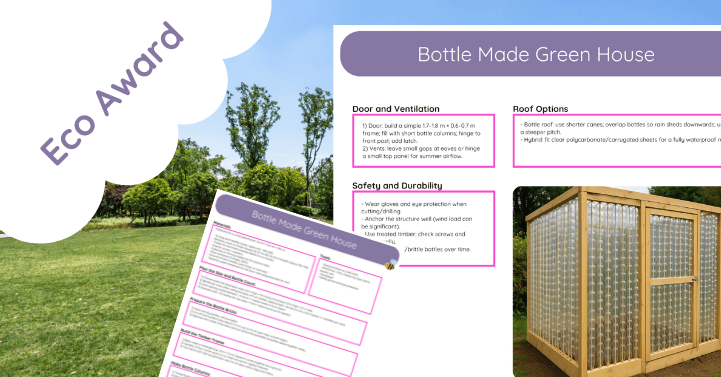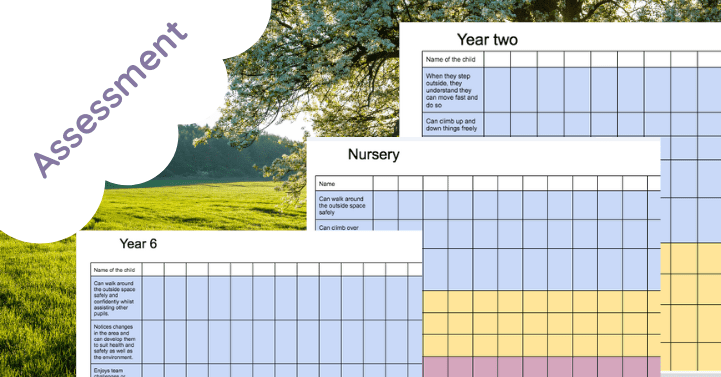Engage young learners in phonics through nature-inspired, multi-sensory Forest School games. Our Phase 1 Phonics Forest School Games provide a hands-on approach to developing early phonics skills, including listening, sound discrimination, rhythm, rhyme, and oral blending, while exploring the outdoors.
Key Features:
- Nature-Based Phonics Play: Encourages sound awareness and language development through interactive, movement-based activities in an outdoor setting.
- Multi-Sensory Learning: Helps children connect phonics to the real world using sight, sound, movement, and touch for stronger retention.
- Encourages Exploration & Engagement: Outdoor play fosters curiosity, confidence, and teamwork, creating a fun and inclusive learning experience.
- Aligned with EYFS & Letters and Sounds Framework: Supports Phase 1 phonics objectives, preparing children for early reading success.
- Develops Listening & Speaking Skills: Activities help strengthen attention, concentration, and oral language development.
What’s Included?
- Six structured outdoor phonics games, including:
- Sound Safari – Exploring and identifying environmental sounds in nature
- Drumming on Nature – Learning instrumental sounds using natural objects
- Rhyme and Run – Recognizing rhyming words through movement and play
- Whispers in the Woods – Practicing oral blending and segmenting with fun whispering games
- Animal Sound Hide and Seek – Developing phoneme awareness with exciting voice sound games
- Muddy Phonics – Encouraging early mark-making and letter recognition using natural materials
- Step-by-step instructions for each game
- Adaptable activities for different ability levels and group sizes
- Tips for creating an engaging outdoor phonics experience
Benefits for Children:
- Develops strong listening and sound discrimination skills.
- Encourages early phonemic awareness, a key foundation for reading and writing.
- Supports speech and language development in a fun, active environment.
- Promotes teamwork, confidence, and creativity in a natural setting.
- Provides an exciting alternative to indoor learning, making phonics more engaging and memorable.
Forest Schools have gained significant attention for their unique approach to education, emphasizing outdoor, nature-based learning. This method offers a multitude of benefits that contribute to the holistic development of children.
1. Enhanced Confidence and Self-Esteem
Engaging in Forest School activities allows children to explore, problem-solve, and take appropriate risks in a supportive environment. This freedom fosters increased confidence and self-esteem.
2. Improved Physical Motor Skills
Activities such as climbing, balancing, and running in natural terrains help develop both gross and fine motor skills, enhancing coordination and physical health.
3. Social Skills Development
Participating in group tasks like building shelters or sharing tools promotes teamwork, communication, and an understanding of the consequences of one’s actions on peers.
4. Language and Communication Enhancement
The sensory experiences in a forest setting stimulate language development, as children describe their activities and observations, enriching their vocabulary and expressive skills.
5. Connection to the Natural World
Regular interaction with nature instils a sense of environmental stewardship and a deeper understanding of ecological systems, fostering a lifelong appreciation for the environment.
6. Emotional Well-Being
Nature immersion allows children to express themselves freely, reducing stress and promoting emotional resilience. They can be active or find peace and quiet, catering to their emotional needs.
7. Academic Benefits
Forest School activities can be integrated with the national curriculum, aiding in understanding concepts through practical application, which enhances retention and motivation to learn.
8. Risk Assessment Skills
Children learn to assess and manage risks in a controlled environment, leading to better decision-making and problem-solving abilities.
9. Sensory Development
The diverse stimuli in a forest environment engage all senses, contributing to sensory development and helping children process information more effectively.
10. Encouragement of Independence
Forest Schools provide children with the freedom to explore and learn at their own pace, fostering independence and self-directed learning.
Incorporating Forest School principles into early education offers a comprehensive approach to child development, blending academic learning with essential life skills in a natural setting.


